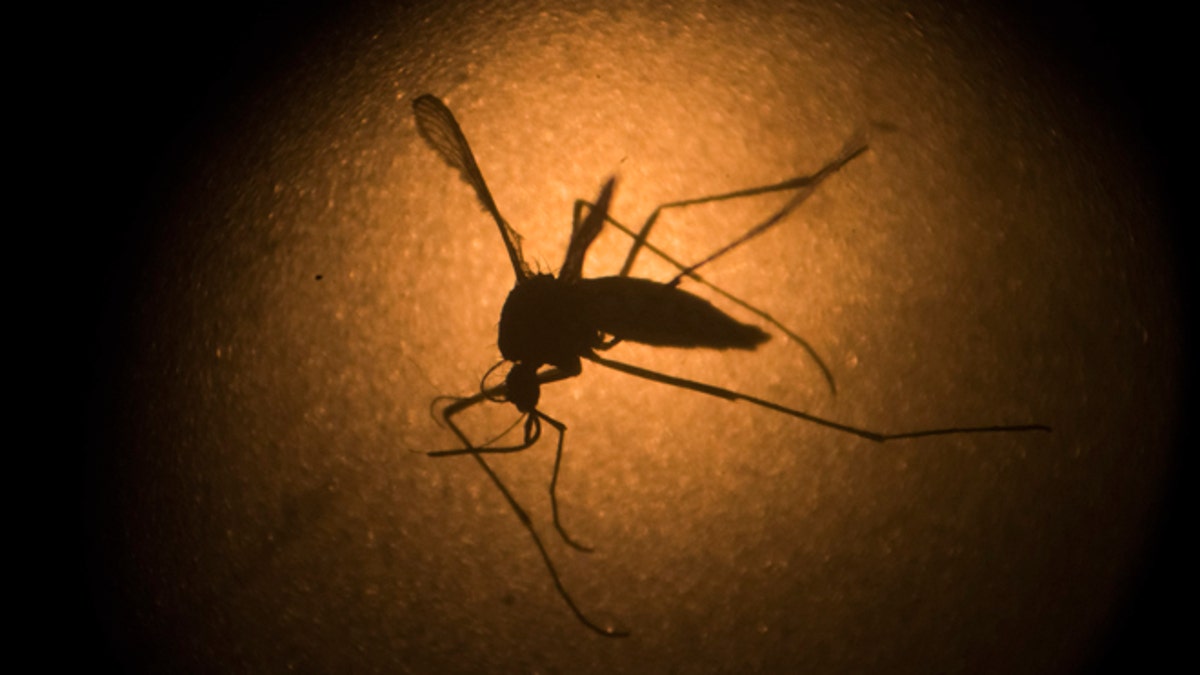
FILE - In this Jan. 27, 2016, file photo, an Aedes aegypti mosquito is photographed through a microscope at the Fiocruz institute in Recife, Pernambuco state, Brazil. The mosquito behind the Zika virus seems to operate like a heat-driven missile of disease. Scientists say the hotter it gets, the better the mosquito that carries Zika virus is at transmitting a variety of dangerous illnesses. (AP Photo/Felipe Dana, File) (ap)
UNITED NATIONS (AP) – Even though the explosive spread of the Zika virus has been met with a new level of international response, thanks to lessons learned from the Ebola crisis, experts warn they are only beginning to grasp the damage the mosquito-borne virus can do.
Doctors speaking at a U.N. meeting on Global Health Crises said Monday that the Zika virus has already affected 60 countries on four continents, and a major outbreak on the Atlantic Ocean island nation of Cape Verde suggests the disease is now poised to enter continental Africa. Zika has already become epidemic in Latin America and the Caribbean.
Although Zika was first identified in Uganda in 1947, researchers in 2012 discovered a second distinct Asian lineage of the virus which is the one that has been linked to neurological problems in Brazil and is the same strain that has been identified in Cape Verde, according to the World Health Organization.
"It is my analysis that we're at the beginning of a really challenging new outbreak with probably substantial impacts that are not fully understood by the world as a whole, even by those who are experts in bio-medical research," said Dr. David Nabarro, a special adviser to U.N. Secretary-General Ban Ki-moon on health issues.
Zika virus is spread mainly through the bite of a tropical mosquito, Aedes aegypti, and was first thought to cause only mild symptoms like a fever and rash, but it has recently been linked to severe birth defects including babies born with abnormally small heads and a rare neurological syndrome that can cause death or temporary paralysis.
Dr. Bruce Aylward, the World Health Organization's emergency response chief, said that thanks in part to lessons learned from the Ebola crisis, a public health emergency was promptly declared in response to Zika and control measures were promptly put in place by U.N. agencies, non-governmental organizations and local governments.
But, he said, mosquito control measures are "proving grossly inadequate and a new vaccine is at least 36 months away.
On Monday, Inovio Pharmaceuticals said it received clearance from the U.S. Food and Drug Administration to begin early-stage safety tests of its DNA-based vaccine against the mosquito-borne virus. The National Institute of Health is also working on a vaccine they expect to begin testing by early fall.
Aylward said until a vaccine is ready health authorities should concentrate their efforts on the most vulnerable.
"The focus is clear, put women at the center of the response and protect them and their children from Zika virus infection. Help these women avoid Zika infection, if possible, and help them manage the consequences if exposed," he explained.
